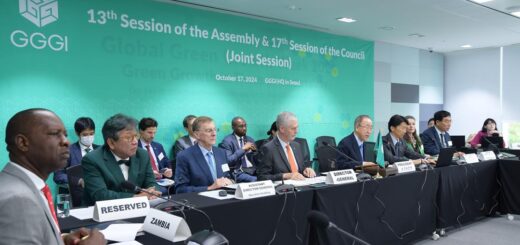UNEP reaffirms Need for Zambia to Establish Enviornmental Court
United Nations Environment Programme (UNEP) has reaffirmed the need for Zambia to establish an Environmental Court.
UNEP Deputy Director of the Law Division Andrew Raine, said there are already over 2,116 specialized environmental courts and tribunals in 67 countries, and there are ongoing discussions about creating an African instrument on environmental rights.
Speaking at the Environmental Protection Day (EPD) 2024 organized by Centre for Environment Justice (CEJ) in Lusaka, Mr. Raine stated that the institutions help advance environmental justice by equipping judges with specialized knowledge.
He highlighted the importance of environmental rule of law, which he describes as having two main components such as good laws and good implementation.
Mr. Raine stressed the need for fair and clear laws, public participation, access to justice and information, accountability, coordinated mandates, and effective dispute-resolution mechanisms.
He also mentioned the potential of specialized environmental courts to advance environmental justice.
“Despite global geopolitical tensions, countries are coming together to address environmental issues through multilateral agreements, such as the international legally binding instrument on plastic pollution and the global biodiversity framework.”
“The human right to a healthy environment is recognized in the legal frameworks of 160 countries and regional treaties like the African Charter on Human and Peoples’ Rights,” Mr. Raine noted.
Meanwhile, Ministry of Green Economy and Environment Permanent Secretary Douty Chibamba, addressed the increasing environmental challenges posed by chemicals, solid waste, hazardous waste, industrialization, and mining, calling for urgent corrective actions to manage and remedy these issues.
Dr. Chibamba, who was represented by Ministry’s Director-Environment, Godwin Gondwe, highlighted the mounting pressures on the environment and the global forces threatening communities, urging a collective commitment to enforcing environmental laws and best practices in stewardship to secure a sustainable future.
“Since its inception, the Ministry of Green Economy and Environment has provided guidance and technical support to enhance programming and governmental protection efforts,” he said.
He commended the Centre for Environment Justice (CEJ) for its significant contributions over the past four years, including convening key stakeholders to discuss urgent environmental issues, expressing pride in the progress made and encouraged continued efforts to bring together key actors for environmental justice.








